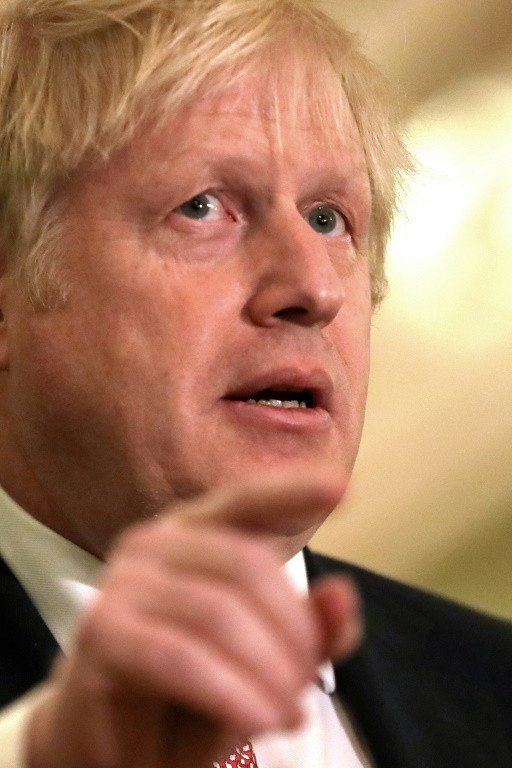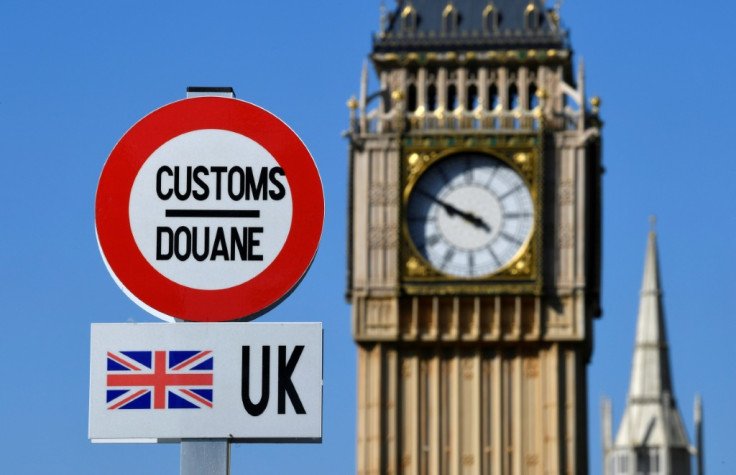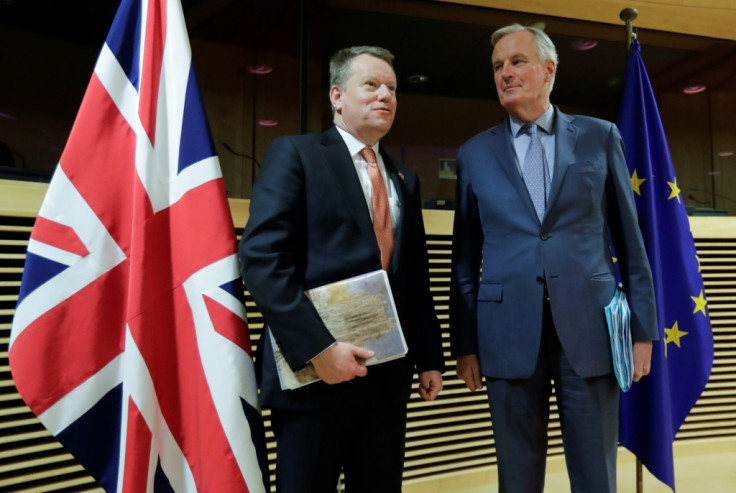UK accepts new post-Brexit customs checks with N.Ireland
Experts said the concession would demonstrate to Brussels that London took the Northern Ireland deal seriously.
Britain on Wednesday conceded that new checks would be required on goods entering Northern Ireland after Brexit, but tempers flared with the European Union over the lack of progress in trade talks.
In a new document, Britain set out how it plans to implement special trading arrangements for the province agreed with Brussels in their divorce deal last year.
It emphasised there must be no new physical customs infrastructure after a post-Brexit transition period ends on December 31, to keep Northern Ireland's border with EU member Ireland free-flowing.
But it conceded some declarations will be necessary as well as expanded checks on animal products moving from mainland Britain into Northern Ireland, as the province will continue to follow EU rules on agriculture and manufactured goods.

The European Commission welcomed the clarification, with a spokesman saying it would examine the text and "look forward to detailed discussions with the UK".
Prime Minister Boris Johnson told business leaders in Northern Ireland in November, while trying to sell his Brexit deal, that there would be "no checks" on goods.
Experts said the concession would demonstrate to Brussels that London took the Northern Ireland deal seriously.
"Pretending otherwise helps no one," said Sam Lowe, of the Centre for European Reform thinktank.

However, talks on a wider post-Brexit trade agreement are not going well, and tensions are rising between the two men charged with reaching an agreement.
UK negotiator David Frost on Tuesday accused Brussels of offering a "low quality trade agreement" that he said was not worthy of a close partner like Britain.
In a return letter on Wednesday, EU negotiator Michel Barnier hit back: "I would not like the tone that you have taken to impact the mutual trust and constructive attitude that is essential between us."
The ill-tempered exchange came just days after a third round of video talks ended without progress, with each side again accusing the other of refusing to compromise.

However, a British official close to the talks, speaking on condition of anonymity, played down the row.
"Difficult exchanges are a sign that genuine engagement is beginning," he said, noting that both Barnier and Frost said they are committed to getting a deal.
Britain left the EU on January 31 after almost half a century of membership and following nearly four years of wrangling over how to implement the 2016 Brexit referendum vote -- much of it over the terms of the divorce.
The exit deal with Brussels covered the most immediate separation issues and created a transition period until the end of 2020 to allow both sides to strike a wider trade agreement.
Arrangements for Northern Ireland were the trickiest part of the agreement, and have yet to be implemented.
Britain wants to leave the EU's single market and customs union.
But both sides feared that new checks on Northern Ireland's border with Ireland could reignite historical unrest in the region.
They struck a complicated compromise, keeping Northern Ireland as part of the UK's customs union but still within parts of the EU single market.
Britain on Wednesday said there must be "unfettered" access for Northern Irish goods to mainland Britain, but conceded some checks the other way on products which risk ending up in the EU market.
"But these systems will be electronic and administered by UK authorities," government minister Michael Gove told MPs.
He said existing checks on animal-based products crossing the Irish Sea will also be expanded "to provide for some additional new processes", but insisted these would be kept "to a minimum".
Politicians in Northern Ireland have an option to decide in 2024 if they want to continue the arrangements or not.
Copyright AFP. All rights reserved.
This article is copyrighted by International Business Times, the business news leader



















